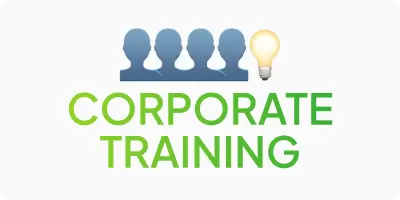
The career ladder in IT has become a fairly common question in the modern world. Nowadays, many people work in IT or plan to change the specifics of their activities and move into this field. However, no matter how much experience they have in IT, every ambitious person wants to grow their career – from a beginner to a professional. Let’s take a closer look at each career step and learn how to move from one to the next.
Who is a junior specialist?
Junior is the first level of professional skills in IT. Key aspects that define a junior:
- Experience level: Juniors are usually new to or just starting their IT career. They may have basic technical knowledge and little experience gained during their studies or internships.
- Skills: Although Juniors should have basic knowledge, they usually do not yet have a deep understanding or experience in large projects. They learn to adapt quickly and develop their competencies under the guidance of more experienced colleagues.
- Training and support: It is important for juniors to have ongoing support from more experienced colleagues. They are usually eager to learn, and it is important to give them this opportunity so that they can absorb new knowledge and develop skills faster.
- Role in projects: Juniors are usually involved in specific tasks under the supervision of senior colleagues.
To summarize, a junior is a person who works exclusively to gain experience, does small projects under the supervision of specialists and helps more professional colleagues. When a junior has gained enough experience, worked in his position for a sufficient period of time, and mastered new skills, he reaches the middle level.
Who is a middle specialist?
A mid-level specialist is a more experienced mid-level specialist. Here are the key aspects that define a mid-level:
- Experience level: Middles usually have significant experience in the IT field, which allows them to independently perform a variety of tasks and understand complex technical problems (unlike Juniors).
- Skills: they have deep technical knowledge and skills in a specific area. Middles are able to work with more complex technologies and understand strategies that juniors do not yet understand.
- Leadership skills: Mids can already manage less experienced colleagues or teams of specialists. They are usually involved in project planning and organization, problem solving, and team coordination.
- Strategic thinking: They understand broader strategies and technologies due to their experience. They can also make important decisions to achieve company goals and take responsibility.
To summarize, a mid-level professional is a mid-level professional with deep technical knowledge and leadership skills who is able to effectively make technical decisions and manage projects in their area of expertise.
Who is a senior in IT?
A senior in IT is a designation of a specialist with a high level of experience and skills. Here are the key aspects that define a senior in IT:
- Level of experience: Seniors have significant experience in the IT field, which exceeds several years. They have deep technical knowledge and practical experience in large projects.
- Skills: They have a high level of knowledge in their field, which allows them to develop complex tactics, implement technical best practices, and solve problems at a strategic level.
- Leadership skills: Seniors are able to manage large projects and teams of engineers, ensuring high achievements and results.
- Strategic Thinking: They understand the broader impacts of their work on business processes and can make strategic decisions aimed at achieving the organization’s big goals.
- Mentoring and counseling: Seniors often act as mentors to less experienced colleagues, helping them with their professional growth and development.
In summary, seniors in IT are highly skilled professionals who have a deep understanding of the technical aspects of their field and have influence over the strategic elements of projects.
Comparison of junior, middle, senior
For a better understanding, let’s look at a table comparing specialists of different levels:
| Characteristics | Junior | Middle | Senior |
| Level of experience | Beginner in IT, basic knowledge | Intermediate experience, confident in their technical knowledge | High level of experience, expert in his field |
| Skills | Basic technical skills, supervised training | Deeper technical knowledge, ability to work with more complex tasks | High level of expertise, strategic thinking |
| Leadership skills | Not required at this stage | Able to manage less experienced colleagues (juniors) | Managing large projects and teams |
| Strategic thinking | In the process of development | Understanding the impact of your work on projects | Focus on the strategic goals of the organization |
| Mentoring | Support and training is available | The ability to provide advice to less experienced | Providing mentoring and development support to other specialists |
How to grow your career in IT?

Career growth in IT is not just about technical knowledge. It’s also about a systematic approach to work, communication skills, and constant growth and adaptation to change. Here are a few steps to help in this process:
- Education and certification: Continuing your education and obtaining new relevant certifications is important for developing a career in IT. Educational courses, elective programs, online courses, and certifications can improve and deepen your knowledge and provide important experience for further transition to a new professional level.
- Practical experience and projects: Active participation in real-world projects and practical experience is also an important element of growth. It is important to gain real-world experience in various areas of your field and expand your knowledge base.
- Mentoring and peer learning: Look for opportunities to learn from more experienced colleagues to learn from their knowledge and get answers to all your technical questions. Taking on the role of a mentor or mentor also contributes to your own professional development, because when you teach someone, you remember the material better.
- Developing communication skills: communication skills, time management, teamwork, and conflict resolution are important elements for a high level in IT. Develop these skills and you will become a more effective leader and bring yourself closer to the next level of the career ladder.
- Building and maintaining professional connections: Participating in conferences, seminars, events, and IT communities can expand your knowledge and help you find new career opportunities.
- Continuous self-improvement: The IT field is changing rapidly, so it’s important to stay up to date with the latest technologies and trends. Continuous self-improvement, reading literature, attending webinars, learning new tools and techniques will help you grow professionally. But there is a burnout point in this aspect. When a person works and studies too much, sooner or later, he or she loses strength. Not only you, but also the company’s management is interested in your growth and development. Therefore, employers should do everything possible to prevent burnout among their employees.
- Career planning: It is important to have a clear career development plan that includes short-term and long-term goals, as well as steps to achieve each of them.
In general, career growth in IT requires a systematic approach, perseverance, and openness to learning. Continuously develop technical
and interpersonal skills to become a successful specialist in your field and reach new heights.
Conclusion
There are three main levels of career development in IT: Junior, Middle, Senior. Each of these levels means different skills and roles in projects. To move to the next level, you need to work on your professional and communication skills. Employers, in turn, should do everything possible to prevent burnout and motivate their staff.
HRbanda will help you find IT specialists of any level: Junior, Middle, Senior. If you want to hire real specialists, don’t hesitate to contact HRbanda.












